What language is spoken in Montenegro?
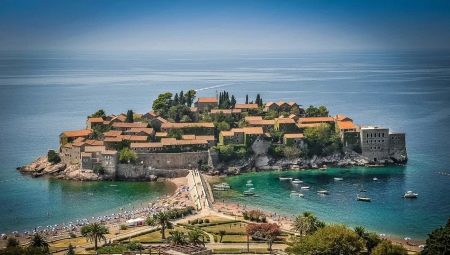
The history of any language is complex and interesting, but the history of the state language of Montenegro can be considered one of the most unusual. Montenegro is a small country on the shores of the Adriatic Sea with a population of just over 600,000. This republic became independent only in 2006, although it is mentioned in medieval chronicles.
From 1946 to 1992, the country was part of Yugoslavia, then until 2006 - into the State Union of Serbia and Montenegro. In 2006, Montenegro seceded from the Union and became an independent state.
The population of Montenegro, despite the small number, is made up of representatives of several nationalities. These are Montenegrins, Serbs, Albanians, Croats, Bosnians, Italians, Gypsies. The richest history and the mixing of different peoples in a fairly compact territory determine the peculiarities of the Montenegrin dialect.
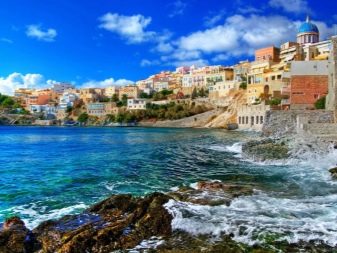
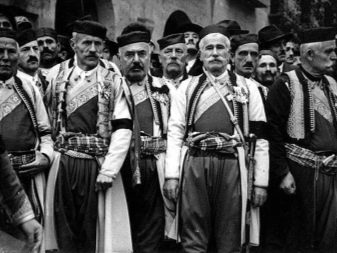
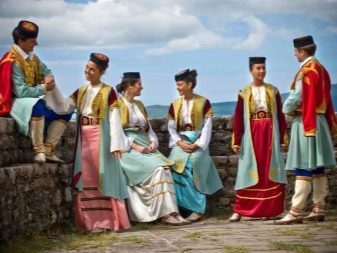
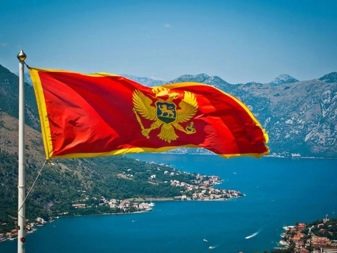
What is the official language?
The state national language in the republic is recognized Montenegrin... At its core, it is one of the dialects of the Serbo-Croatian language. This dialect received the name Iekava-Shtokava and, along with Serbian, Croatian, Bosnian, belongs to the South Slavic languages of the western subgroup.
The dispute over which language will be recognized as the official one began in Montenegro back in the late 90s and became especially acute by 2007. Before that, the state language was Serbian. The question of the state language was more political than linguistic. The Montenegrin language received the status of an official language only in 2011 and was named Montenegrin by international standards. That is why, according to the results of the 2011 census, only 37% of citizens recognized the Montenegrin language as their mother tongue.
These were mainly residents of the central part of the country. There is no subject "Montenegrin language" in schools and institutes yet, but "Native language" is being studied.
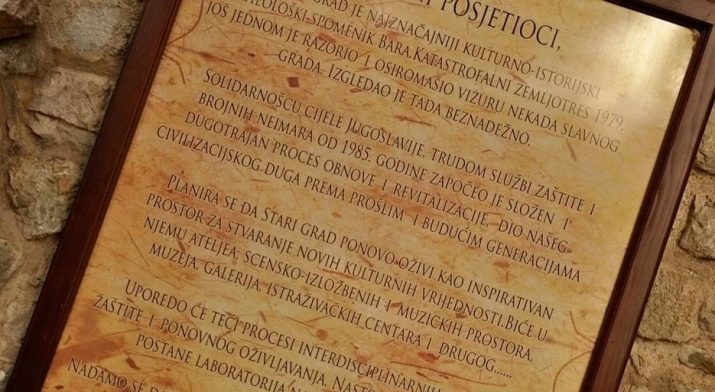
The main difference between the Montenegrin language and Serbian is the pronunciation of vowels and their spelling - in Serbian it is harder, and in Montenegrin - soft. This is especially true for the sounds [e] and [je], that is, the form [uje] is more common, similar to the Old Church Slavonic “yat”. In the colloquial version, this is more characteristic of the southern regions of the country, while in the northern regions the dialect becomes harsher.
The Montenegrin vocabulary contains words from all closely related South Slavic dialects. There are original words, but there are not enough of them in order to be able to talk about some cardinal differences. Because of this mixture of dialects, linguists consider Montenegrin to be relatively new. The instability of linguistic norms allows us to say that the literary language in Montenegro has not yet been formed, certain linguistic norms exist only for official documents.
The written Montenegrin language has another unusual feature - in it Cyrillic and Latin are equally used, although in recent years, the Latin alphabet has been increasingly used in official documents, which more clearly conveys phonetic differences. In literary creation, no restrictions yet exist.
This dual use is explained by the fact that at different times the territory of the republic was influenced by either Western or Eastern linguistic cultures. The spoken versions of the South Slavic language differ little from each other, therefore representatives of different nationalities living on the territory of the republic understand each other without any difficulty.
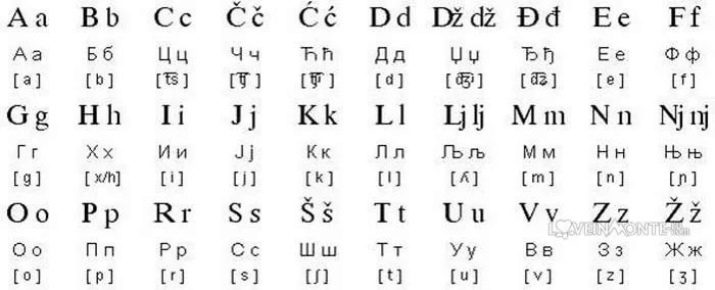
Do they understand Russian?
All Slavic languages have common roots, therefore, in many respects they are similar to each other. The Montenegrin language is no exception. The Russian language and Montenegrin have many features in common. Some words are either similar, or very similar, or understandable: yes - "yes", no - "no", good afternoon - "good is given", good - "good", sea fish - "sea riba", city - "hail".
Tourism and recreation in Montenegro are becoming more and more popular among Russians. The inhabitants of the country treat Russian-speaking tourists very warmly, many Montenegrins know and understand Russian, especially those who are closely related to the tourism business by the nature of their activities: guides, hotel staff, sellers, waiters.
Pointers, signs, information boards, menus in restaurants are often duplicated in English and Russian, so it is quite easy to navigate here.... It is better to address a question to passers-by in Russian. Not all residents know English.
A Russian, once in Montenegro, need not fear that he will not be understood. But for a more complete communication, it is worth learning a few phrases. This will help to avoid possible difficulties in communicating with the indigenous population.
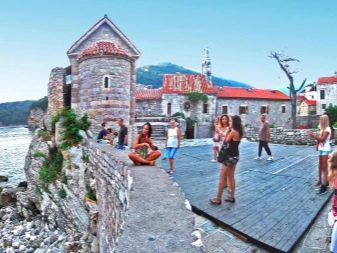
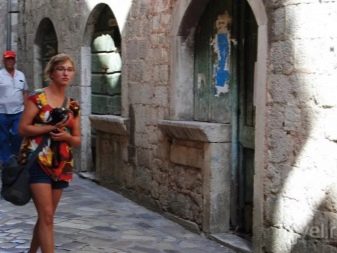
Difficulties in communication
Going on a trip to Montenegro, even if you don't want to learn the language, you need to know its features. Some words, despite the similarity with Russian, have a different or even opposite meaning. For example, the habitual “right” in Montenegrin means “directly”, the Russian “maniac” means “deficit”, and “shame”, “disgrace” means theater. The word “diarrhea”, which is awkward for the Russians, is “pride” for the Montenegrins, so the insulting to the Russian ear “I myself am a diarrhea girl” in Montenegrin has a completely positive meaning - “I am a proud girl”.
The familiar word "sausages" sounds funny for a traveler who speaks Russian. In Montenegrin it is "horseradish".The Russian verb in the imperative mood "we are going" does not at all mean an invitation to a trip, it means "I eat", and "to eat" is not an invitation to a meal, but an offer to "try" or "try".
A few more unusual lexical meanings:
- “I myself am harmful” - I am good, kind, worthy;
- "Club" - depth;
- "Lyubitsa" is a beetle;
- "Belly" - life;
- "Safekeeping" - food;
- “Art” is experience;
- "Cookies" - fried meat;
- "Comfort" - safety;
- "Security", "security service" in the inscriptions on the uniform of the security officers will look like Obezbedenje.
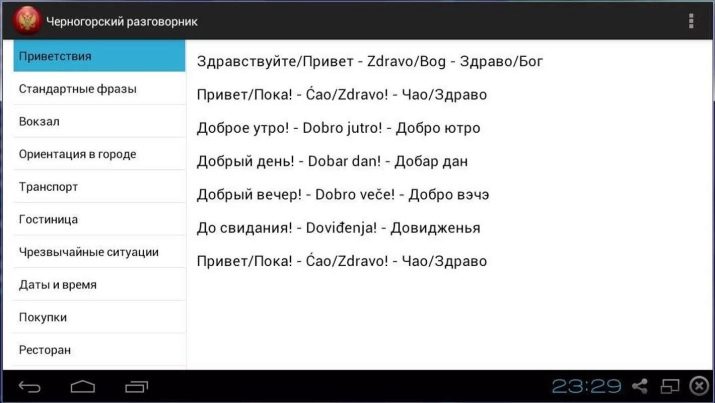
You can get into an awkward situation by using the familiar words "matches" and "chicken". They are consonant with the Montenegrin rough designation of male and female genital organs, in other words, Russian mat. The poultry itself should be called "kokoshka" and the chicken meat "pilache meat" or "pilatina".
Any language is original and inexhaustible, sometimes even seemingly understandable phrases hide a completely different meaning. But in any awkward situation, it is necessary to remain friendly and calm, to be guided exclusively by common sense. An open smile, expressive gestures and intonation can help out.
Going to another country, communicating with another people, even those with Slavic roots, you must remember that each language has its own characteristics and it will be completely useful to learn at least a few common phrases and know the meaning of two or three dozen words. This will make the communication itself easier and more enjoyable, as well as a manifestation of respect for the local language culture.

How to learn?
There are many methods for learning foreign languages. But, preparing for a short trip, you don't really want to spend time and energy on this, and this is completely unnecessary. Montenegrin is still not international English. For those who are going to live in Montenegro all the time, knowledge of the language will come gradually, the relationship between Russian and Montenegrin plays a significant role here. But for constant and short-term communication, knowledge of the most used words and expressions will be very useful.
This can be greatly helped by a simple but very effective technique that does not take much time. It is suitable for mastering any language, and especially for related Slavic languages.
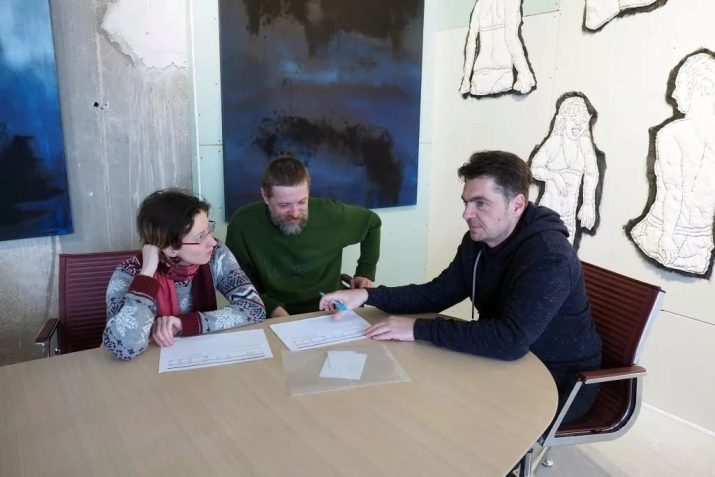
The technique was named "language matrix". Its essence is as follows.
- Moving from simple to complex. First, the simplest and closest to the Russian language words, phrases, sentences and short texts are studied, then the tasks become more complicated.
- Next, you need to enable audio recording and listen to language material.
- Without referring to the printed text, try to understand by ear what is being discussed, highlight individual phrases, words... It is worth repeating listening until it seems that the whole essence of the text is clear.
- Open typed text, read aloud and listen to the audio recording at the same time, comparing the features of pronunciation and spelling. At this stage, translation should not be addressed at this stage.
- Open translation and check the correctness of independent guesses.
- Listen to and speak aloud the audio recording several timesmemorizing the correct translation.
This method allows you to go through all the stages of training at any free time: on the road, when doing household chores, on a walk. Multiple repetition and a deliberate approach will allow you to remember the language material firmly and for a long time. A small phrasebook, including the most common words and expressions, will also help in communication.
Each language is rich, distinctive and interesting. It is inseparable from the history and culture of the people. The Montenegrin language is no exception. Studying Montenegrin can become an exciting hobby and contribute to interesting communication, as well as the establishment of strong friendships and business international ties.

For how they say in Montenegro, see below.








